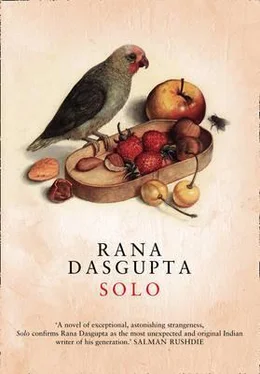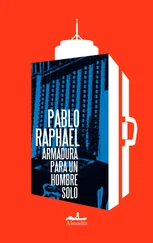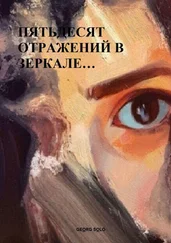And Ulrich was carried away to see her smile at him, openly, and without restraint. He has kept that smile with him ever since, even as it has become progressively detached from the time and the place, and, finally, from Magdalena herself.
She sat at the piano. Ulrich watched the tightly laced black shoes that reached below for the pedals, and the narrow band of her legs that was visible beneath the blue of her dress.
Ulrich was astonished by her performance, which showed how intent she had become since he had seen her. She had become a musician, and he watched her with every kind of yearning. As she played, her toes were on the pedals, and only the point of her shoes’ long heels touched the floor. Ulrich found himself aroused by the click each time her soles made contact with the brass.
Afterwards, they walked in the garden together, and he told her about jazz, which it was impossible to hear in Sofia. She told him she had fallen in love with him long ago.
‘As a little girl I was always tender for you,’ she said. ‘And my brother told me such stories about you when you were away in Berlin. He knew you would do something wonderful: he knew he was less than you, and he put your ambition above his own. Since he’s been gone I’ve not stopped thinking of those stories.’
11
THE FRICTION OF ULRICH’S MEMORY, moving back and forth over the surface of his life, wears away all the detail — and the story becomes more bland each time.
Nowadays, Ulrich finds it difficult to remember any happy moments from his marriage to Magdalena. Whenever he stumbles upon such a memory, he adds it to a list so it will not disappear.
Item
Magdalena’s father paid for the newly wed couple to honeymoon in Georgia. She wanted Ulrich to see where her maternal family came from, and where she herself had spent many happy times. He loved Tbilisi, and her joy at showing it. Her cousins were eccentric, attentive hosts, who woke them in the middle of the night to climb into horse carts and travel for hours along mud roads just to see an old church, or a beautiful hill. Ulrich took Magdalena to see Tosca in the arabesque opera house, and their happiness was absolute.
When they emerged from their room each morning, Magdalena’s uncle made gestures to Ulrich that would have been obscene if it were not for the great generosity with which he delivered them.
After this journey to Tbilisi, Ulrich never left Bulgaria again.
Item
Ivan Stefanov invited Ulrich and Magdalena to dinner to celebrate the couple’s wedding. There was a strict dress code in the Stefanov mansion, and Magdalena wore her most sumptuous gown. Gloved waiters carried lobster aloft, and each place had its own cascade of crystal glasses. Ivan was merry, and stood up to make a speech about the deep affection he had always held for Ulrich. His lugubrious aunts blinked behind diamond necklaces, and ate little. After dinner Ivan became drunk, and he kept his guests up with his ideas about the company, his gossip about his workers, and his theories about life’s various dissatisfactions. Magdalena signalled several times to Ulrich that she wished to leave, but he could not find the appropriate break in his employer’s monologue, and they did not make their exit until Ivan Stefanov fell asleep in his chair.
Item
Boris and Magdalena had grown up in luxurious surroundings, which Ulrich’s bookkeeper salary did not allow him to match. They moved into a small house on Pop Bogomil Street, near the entrance to the city. But she liked the house very much, which was a relief to Ulrich. Every time he asked her, she said that she liked it.
Item
It became a tradition with them that Magdalena came to meet Ulrich after work every Friday, and they went to hold hands over the table in a nearby cake shop. He used to watch for her arrival by the upstairs window where he worked, and every week he had the same stirring of love when he saw her come round the corner, dressed up for him, and so small she fitted inside the eye on the casement handle.
Item
Ulrich surprised Magdalena with a chemistry trick. He put a glass vial in a bowl of water, and, calling her to watch, broke it open with pliers. The bowl erupted with boiling, and a pink flame hovered over the water. Magdalena started, while Ulrich looked between the bowl and her face, incandescent himself.
‘Isn’t it marvellous?’ he said, as it died down.
‘It’s very pretty. But what does it lead to?’
‘Oh! Something will come of it, one day.’
‘It’s childish, it seems to me.’
There was a coolness between them for the rest of the day. And yet it was on that night that their son was conceived.
Item
They were once invited to a wedding in the Jewish quarter. The guests spoke Ladino and Bulgarian both, mixed together. There was a klezmer brass orchestra, and Magdalena laughed with the music, and danced unrestrainedly with him, though she was exuberantly pregnant. She kissed him and said, I hope our baby will be Jewish .
Item
Faithful to her maternal tradition, Magdalena wanted to give their son a Georgian name. Before choosing, she called several names from the front door to see how they would sound when, in years to come, she summoned her boy from his play.
Item
Elizaveta loved Magdalena. I never expected such a wonderful daughter-in-law , she said. Her own situation was gloomy, with no money and her husband lost, and the life of the young couple gave her new joy. She came to the house with gifts she could ill afford, yodelling and prancing to delight her grandson. Early one sunny morning, when she was drinking tea with Magdalena, Ulrich came back from a walk with his son, and announced, ‘Birds don’t fly away from a man holding a baby!’ and the two women burst into laughter at the expression of awe upon his face.
Item
An upright piano was brought into the house for Magdalena to continue her practice. Nothing gave Ulrich greater happiness than to sit behind her after dinner and request his favourite pieces, one after another.
As the months drew on, Magdalena ceased to find romance in their meagre situation, and she and Ulrich were led more and more frequently into arguments.
‘When are you going to leave Ivan Stefanov and his leather company? It was supposed to be temporary, and now it’s been years. And you’re still earning the same as when you began.’
‘Think of Einstein. While he was doing his routine job in the Swiss Patent Office he managed to come up with his greatest theories. Perhaps something like that will come to me!’
He smiled bashfully, and she tutted with exasperation.
‘You’re no Einstein! And you have a wife and a son to take care of.’
At social gatherings he asked his acquaintances whether they knew of any jobs that would pay well. But his enquiries lacked conviction, and led to nothing. He said to Magdalena,
‘Perhaps I could set up a little chemistry laboratory here. Investigate some compounds in the evenings. Your father made some money that way.’
She said,
‘Ulrich! Face up to reality! Sometimes I wonder if you know what the word means.’
He looked at her strangely, and exclaimed,
‘What is reality? Is it this?’ — and he banged the table excessively, then the wall — ‘is it this?’
She waited, impassive before his transport, and he said,
‘Did your brother believe in reality ? Didn’t he spend his whole time thinking about how to overthrow it?’
‘I am not my brother, Ulrich.’
One day, Ulrich arrived home with an old desk that had been discarded from the office. A colleague helped him cart it, and they carried it to the back of the house.
Читать дальше
Конец ознакомительного отрывка
Купить книгу












